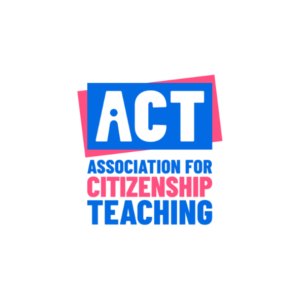
Understanding the Impact of Fraud
Fraud is a pervasive issue in the UK, affecting people through phishing attempts and scams. Educators must comprehend fraud’s intricacies, its evolving methods, and the legal aspects to effectively engage students. Exploring fraud, its risks, consequences, and legal debates is crucial.
Curriculum Development and Support
With backing from the National Crime Agency and commissioned by the Home Office, ACT created a curriculum model for Key Stage 3 Citizenship. It offers downloadable lesson plans and resources for both novice and experienced teachers, along with assemblies for non-specialists, including Police Fraud Prevent Officers. Our ongoing work includes developing a series of CPD sessions for teachers.
Integrating Fraud into Citizenship Curriculum
Fraud education aligns with key elements of the national curriculum for Citizenship and complements Relationships, Sex, and Health Education (RSHE). It covers topics such as law, justice, crime, financial education, grooming, money mules, consent, media literacy, and internet safety. It empowers students to become active citizens, advocating for fraud prevention and educating their communities.
Structured Learning Approach
Four adaptable lessons for Year 9’s are accompanied by two assemblies. Assessment methods encompass retrieval practice, ipsative assessment, questioning techniques, and quizzes.
Lesson 1: Introduces fraud, the Fraud Act 2006, and its impact while connecting to fundamental British values. It includes an interview with a fraud protection officer to illustrate potential careers.
Lesson 2: Explores ‘money muling,’ delving into the roles of the criminal justice system and sentencing guidelines, including discussions on the legal system and punishments.
Lesson 3: Focuses on online fraud awareness, spotting signs and reporting fraud, merging personal development with Citizenship.
Lesson 4: Widens the perspective to fraud prevention, highlighting government roles, legal aspects and lobbying. Each lesson’s key question fosters knowledge, skills, and confidence in students while addressing fraud as a significant issue.
Assemblies and Alternative Approaches
Assemblies, designed for non-specialists and external visitors to schools, introduce relevant topics and build school culture. Inviting external speakers enriches learning experiences and helps meet statutory requirements for teaching British Values, RSHE, and Citizenship. However, assemblies should complement substantive knowledge and not replace lessons.
Accessible Resources and Teacher CPD
The free materials, including lesson plans and assemblies, are accessible on the ACT website. Everyone can access these resources by signing up for free e-membership.
Fraud education in Citizenship equips students with essential skills and empowers them to be active citizens, contributing to safer societies. We hope you find these materials valuable for your teaching. Access at www.teachingcitizenship.org.uk/resource/fraud/.
Free CPD sessions are available to book:
13/12/2023 Why should I teach about fraud and financial crime? Developing new knowledge in Citizenship
31/01/2024 What substantive knowledge can support our teaching of fraud and financial crime in the Citizenship curriculum?
29/02/2024 Developing media literacy and critical thinking with our pupils to protect them from being victims of fraud and financial crime.
20/03/2024 Using fraud and financial crime as the stimulus for an active citizenship campaign

Website: www.teachingcitizenship.org.uk/
Return to Forum Updates Homepage